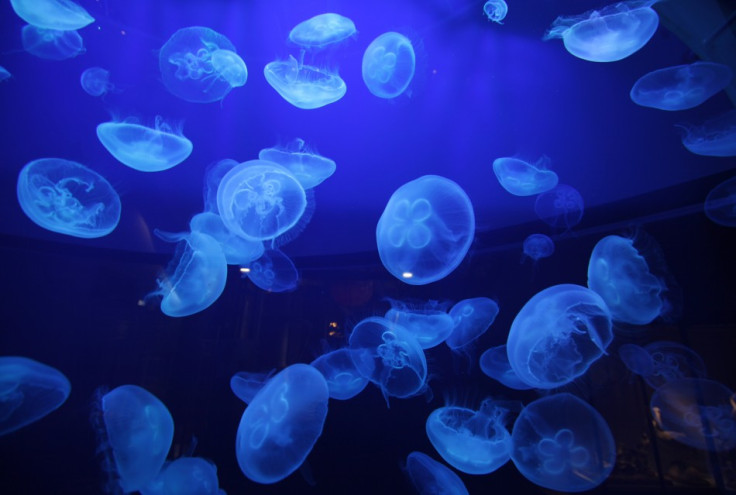British Swimmers Warned Over Jellyfish Invasion

Britain's seas could be turned into 'jellyfish soup' this summer, scientists have warned British swimmers. Families that have made their own cut backs and decided to holiday in the U.K. this summer have been warned to keep a close eye on the jellyfish invasion and report all sightings immediately. The Marine Conservation Society (MCS) said: 'The number of jellyfish living in the U.K.'s coastal waters is on the rise. "There is strong evidence that jellyfish numbers are increasing around the world, including U.K. seas, and these increases have been linked to factors such as pollution, over-fishing and possibly climate change."
The MCS believe that the numbers of jellyfish in British waters will increase throughout the summer and have urged all beachgoers to keep track of the invasion by reporting sightings. The agency has warned swimmers not to touch the jellyfish as they do have a sting.
Programme manager Peter Richardson said: 'They are increasing around the world and it has been linked to pollution, over-fishing and possibly climate change. Already some areas of the U.K.'s seas resemble a jellyfish soup, such as the Irish Sea where large numbers of moon, lion's mane, blue and compass jellyfish have been reported.'
Torness Nuclear power plant near Dunbar, had to close their station because as a precautionary measure as the jellyfish blocked the filters. Local fishermen on three trawler boats helped to clear the moon jellyfish from the seas around the plant. EDF which operates the plant said that the reactors were shut down as a precautionary measure and there was no danger to the public at any time.
There have been three confirmed leather back sightings since June and have all been spotted off waters of Western Britain where jellyfish blooms have been reported. Though jellyfish mainly bloom in the summer months, they can survive the cool winters too. Dr Matthew Witt, of the University of Exeter, who analysis the survey data, said the study, which has been going since 2003, had yet to throw up any 'shocking' revelations but that there were signs of a link between jellyfish numbers and the North Atlantic Oscillation, a climatic phenomenon which affects the flow of warm air between the tropics and northern regions.
© Copyright IBTimes 2025. All rights reserved.





















